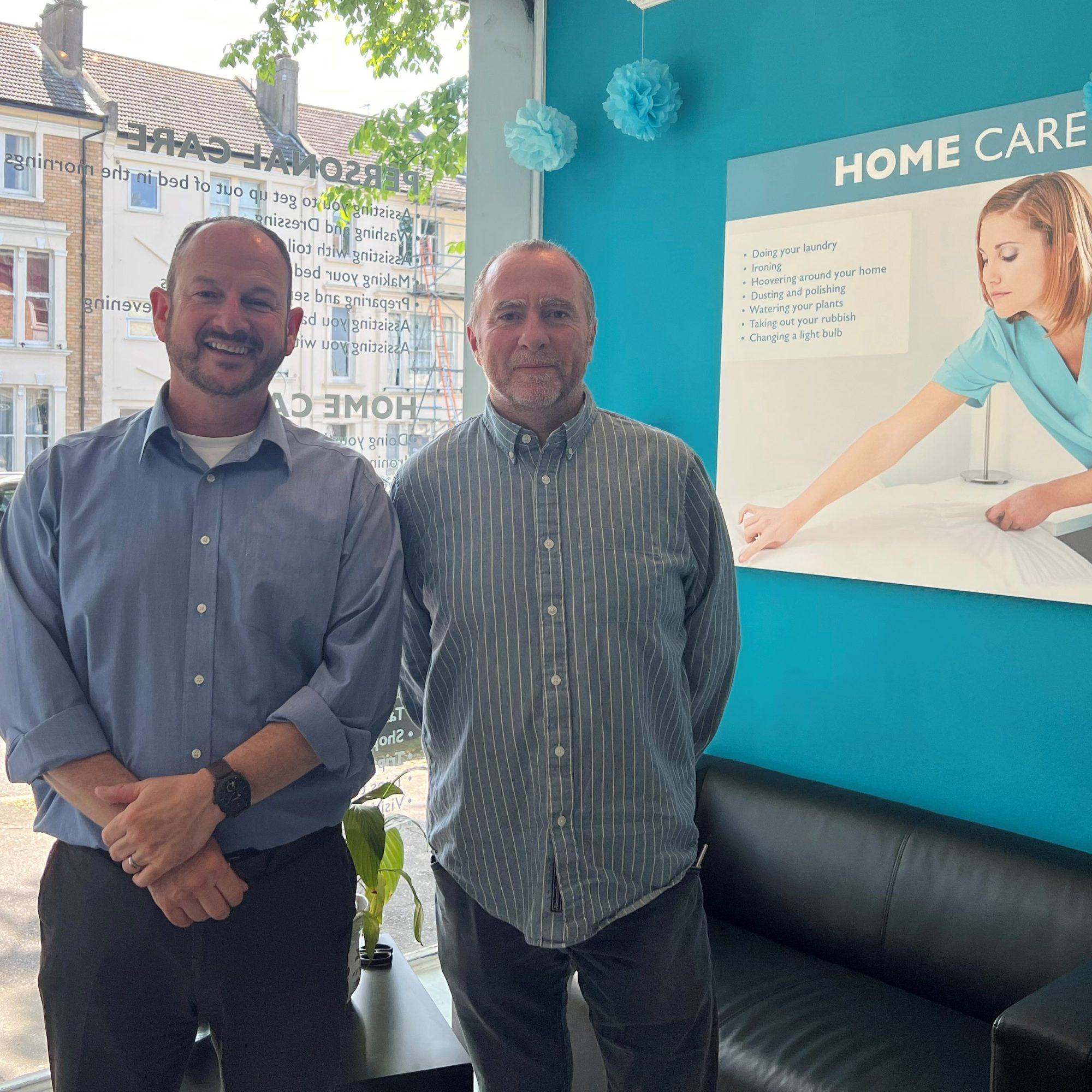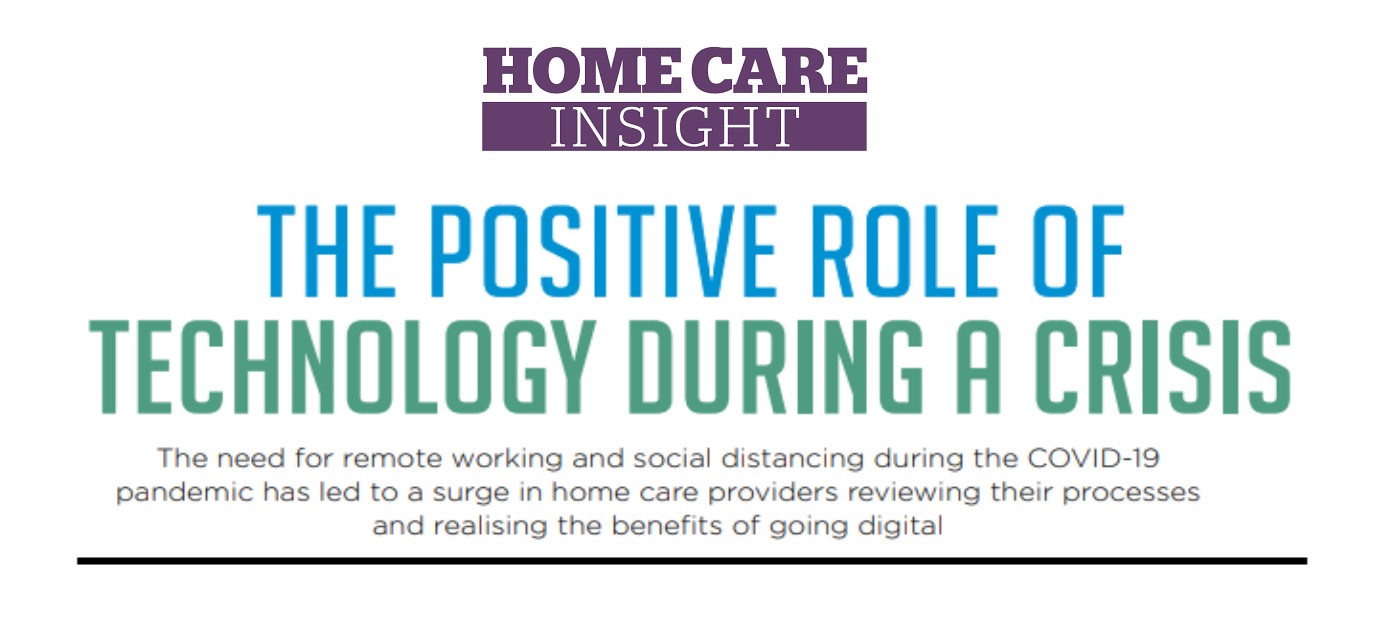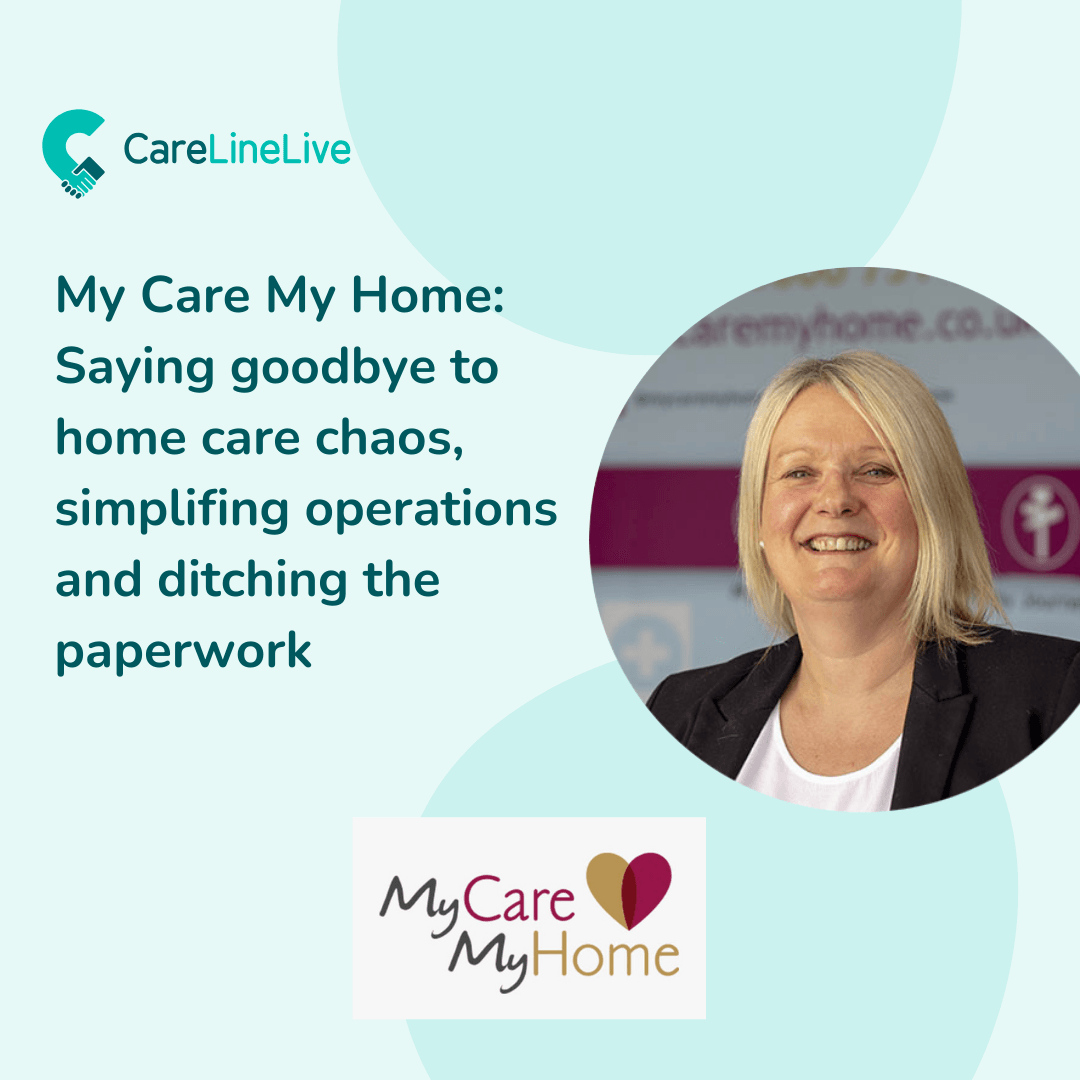The CareLineLive team recently sat down with Neil Kentish, Area Manager, and Ronnie Chatterton-Sim, the Managing Director, at Coastal Homecare, to learn more about the challenges facing home care providers and how technology can support both carers and home care providers alike.
Coastal Homecare provides home care, social care, and personal care services throughout West Sussex, Mid Sussex, East Sussex & Brighton, and Hove. The home care provider currently hires around 120 carers, who provide approximately 2,500-3,000 care hours a week.
Coastal Homecare was one of CareLineLive’s first customers and has been working with the team for over five years. Prior to CareLineLive, the team was using another home care platform but needed a platform that was tailored to its specific needs.
Over to Neil and Robert!
Can you describe your experience managing a home care agency? What are some of the biggest challenges you have faced, and how have you overcome them?
When you consider the impact of Brexit, the coronavirus pandemic, and the cost of living crisis, managing a home care agency can bring momentous challenges.
For example, Brexit has disrupted the recruitment landscape. Whereas previously we would have attracted talent from Europe, that tap was turned off virtually overnight. With more limited European labour we now find ourselves competing more with local industries – including supermarkets and businesses supporting Gatwick airport – when we hire carers. It can be difficult to be competitive against these industries. Because of this, we need to be resourceful and find new routes for attracting talent, as well as differentiate ourselves from the other employment options. People don’t always think about care as a career option but for some it can be a great choice so we are very resourceful in the ways in which we go about recruiting people.
As a result of the war in Ukraine we have recently welcomed two Ukrainians with open arms. One was a teacher previously and has been attracted by us to come into the care sector. We’re also focusing on international recruitment again, which is a hugely valuable resource. But it isn’t just about hiring great talent, it’s important to be a robust company that values our teams. Retention is just as important as recruitment and we do that by properly valuing people, retaining our focus as a small, family focused provider that knows all our carers individually both as people as well as staff
In your opinion, what role does technology play in addressing the challenges facing home care businesses?
Technology will never replace staff. The face-to-face work carers undertake cannot be matched by technological alternatives. Instead, it’s all about empowering carers, having the tech in place that helps them do their job better.
Technology also helps us to streamline our internal operations. This includes the use of accountancy tech and home care platforms like CareLineLive, which allow us to provide a better service to our clients and their loved ones.
How do you see the home care sector changing?
Within the social care sector, home care unfortunately continues to be a low priority when it comes to funding. This puts an additional strain on the sector when it is faced with accommodating clients with ever-increasing needs.
The sector needs adequate funding if it is going to be able to adopt new tech solutions effectively, as well as a better understanding of the importance of community-based care. The conversation needs to focus on home care, not just residential care.
There’s a huge focus on hospital discharge at the moment and sometimes it means people are sent back home when they are not ready. That’s a big challenge for the carers supporting them.
How does your agency measure caregiver satisfaction and engagement?
Caregiver satisfaction is of utmost importance to us. We realise the importance of face-to-face support for new carers as it can be a lonely profession with anti-social hours. In order to continue to support staff we arrange regular face-to-face support, get togethers, socials and reward schemes, including our ‘carer of the month’ programme.
We also recognise the importance of keeping our carers informed about what is happening in the home care sector. Our weekly newsletter includes updates about our operations as well as new innovation and government regulations.
In your experience, what are some of the key factors that contribute to caregiver turnover?
Home care agencies need to care about their carers too. It’s not always about attractive salaries, it’s also ensuring carers are looked after.
Because of this, knowing carers individually and understanding their interests is important for retention. For example, a recent recruit takes part in a Saturday football league, so we know that he isn’t able to work that day. Understanding the pressures they face outside of the workplace is also key. We need to think about how we can support them in terms of child care and their other responsibilities.
Similarly, carers devote so much time and effort into caring for their clients, it can be disillusioning when they are not kept informed with important updates. So giving carers the latest information about their clients is very important.
Do you have any interesting carer stories or anecdotes that are unique and worth sharing?
Recently a member of our team joined after moving back to the UK with his family from Spain. He did not anticipate working in the sector, but after trying it, he found out he loved it.
Another of our carers has recently joined from Hungary via a certificate of sponsorship. We’ve also had staff enter the industry after being introduced by a friend from her native Hong Kong. Closer to home we also recruit from local colleges. There are a variety of routes and experiences that lead people to a career in care.
What is your CQC rating currently? How has it changed over the past years and do you think CareLineLive has played a part?
We’ve maintained a ‘Good’ rating across the board. Using data gathered by CareLineLive has undoubtedly helped make our operations and reporting more efficient. It also allows us to retrieve evidence of good practices at the push of the button.
For example, while submitting our latest PIR (Provider Information) request from the Care Quality Commission, CareLineLive proved extremely useful as it allowed us to compile information quickly from data that had already been uploaded into the system as part of the day-to-day work of caring for people.




